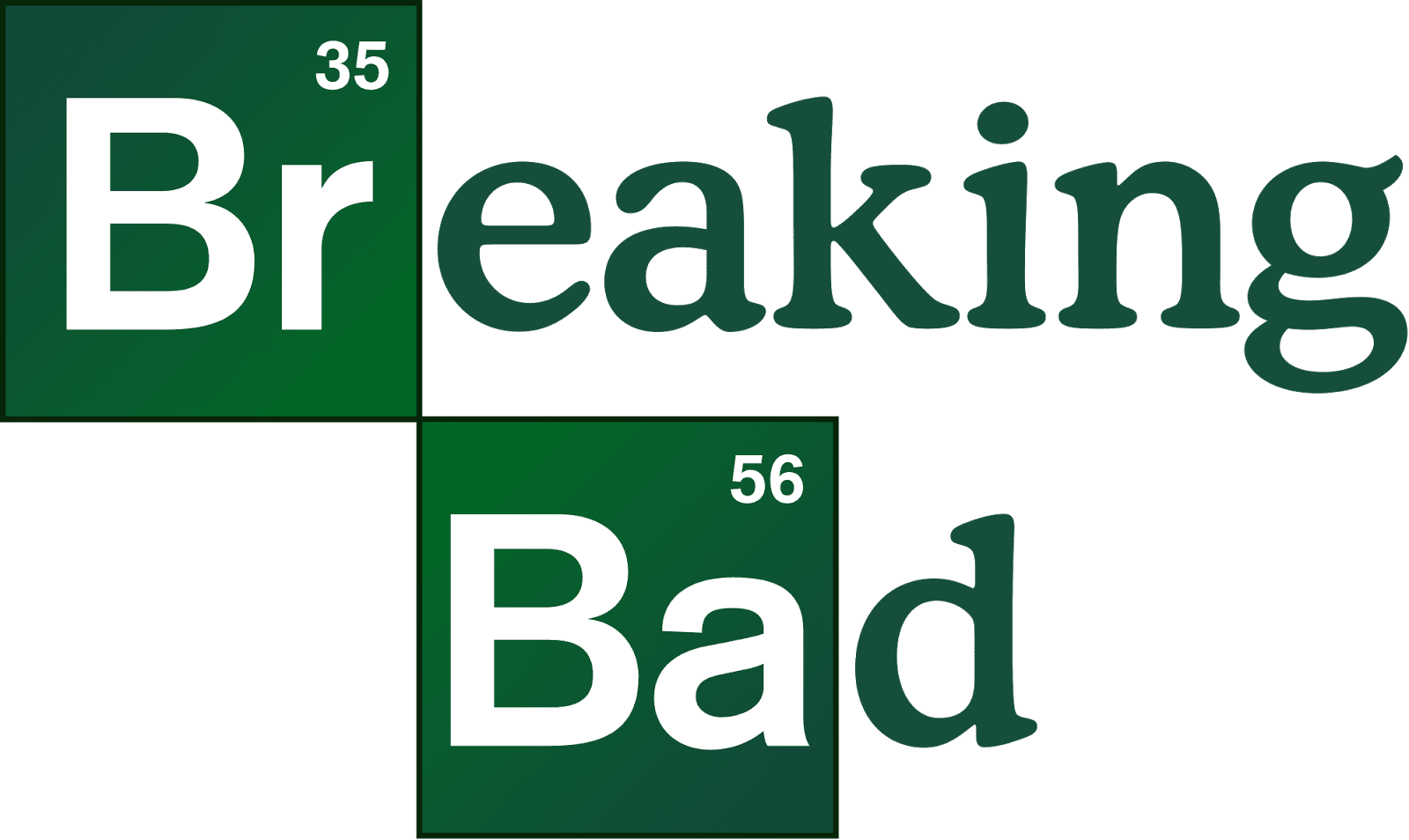Ten years ago, Walter White emerged from an RV in only his briefs and a buttoned-down shirt, pointing a gun to the camera. This would be the image that started a phenomenon. Breaking Bad quickly became one of television’s most beloved series, inspiring a fanbase that reached across demographics to parse every episode for clues, allusions, and thematic content, while also reveling in the shocking twists and Emmy-caliber performances.
But Breaking Bad was much more than just a well-made series. It helped push the television-watching public into the Golden Age of Television, an era of content that made us rethink how we consume television, and helped us to understand that it is a medium that could be held on the same level a film in terms of quality. It’s also a series that spurred much conversation about gender roles on television and toxic masculinity onscreen, as well as in message boards devoted to the series. Very few shows cultivated fanbases as well as Breaking Bad did, but even fewer prompted cultural conversations like this one. So, after a few years removed from the hype, and a full decade since the series premiere, The Pop Break’s TV staff decided to look back at what the series meant to us.
This post will include spoilers for Breaking Bad:
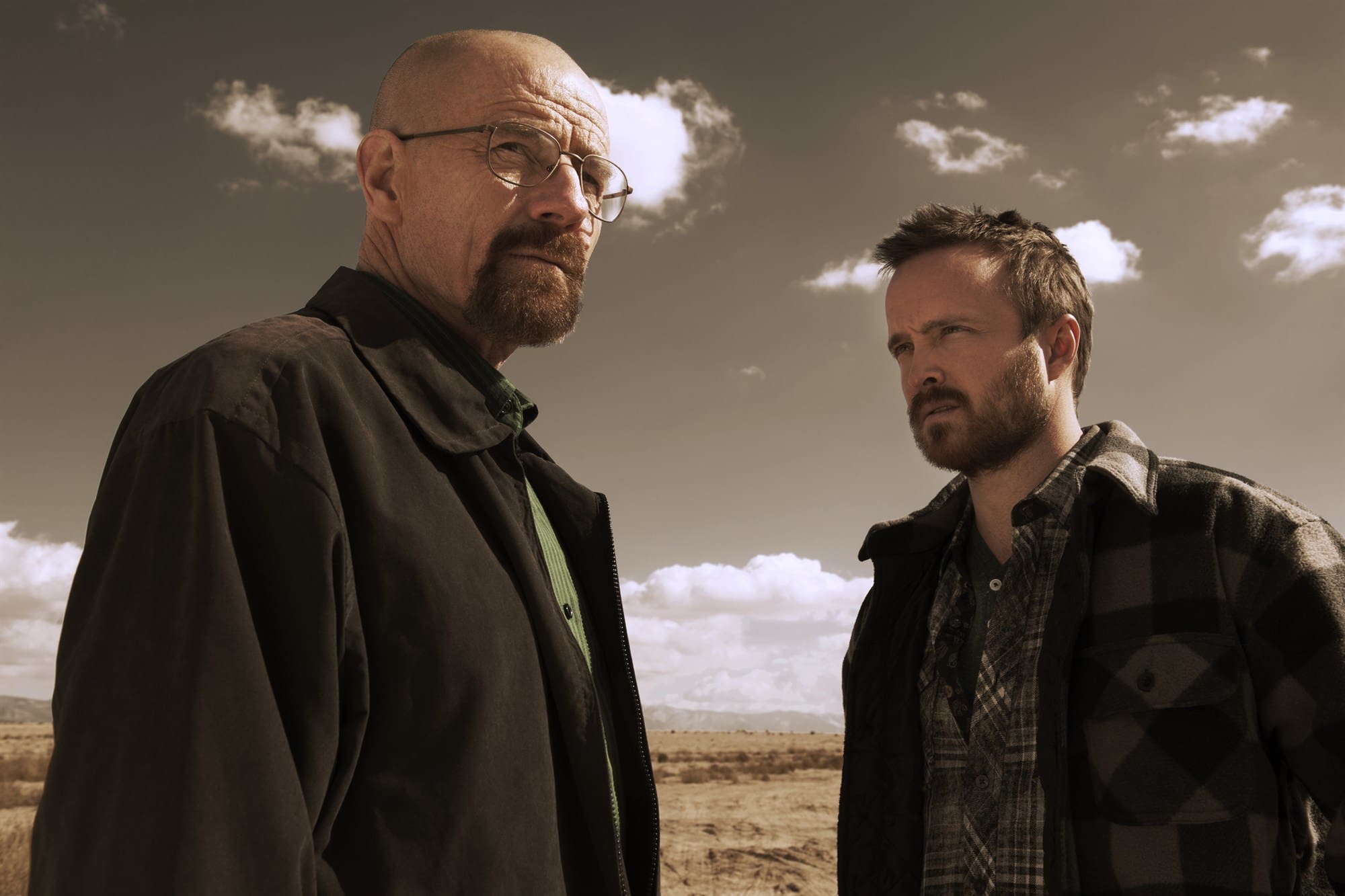
Matt Taylor, TV Editor:
I started watching Breaking Bad on Netflix, during the first semester of my freshmen year of college. I had trouble making friends in the early weeks of my undergraduate career, and binging series online (just a few years before that term joined our lexicon) was a nice relief. It was under these conditions that Breaking Bad became a major obsession of mine – the series was just compulsively addictive, with its never ending parade of cliffhangers compelling me to put off my schoolwork so I could keep watching.
There were multiple moments – Gus’ death, Jane’s overdose, when Todd murdered the little boy who witnessed their crime – that made me gasp audibly, even when I was alone in my dorm. Thankfully, I made friends by the time the final season aired, and Breaking Bad became a communal viewing experience, specifically in the now legendary episode “Ozymandias.” In many ways, Breaking Bad was an anomaly: a cultural phenomenon, as well as a show that lived up to the hype. Yes, it was fun to watch, but it was also genuinely well made and deeply thought provoking.
But Breaking Bad was also my first exposure to toxic fan cultures that would go on to plague many great shows. Forums dedicated to the series seemed to be comprised almost entirely of users who idolized Walter White as the Patron Saint of Repressed Men, whereas I had always seen him as a psychotic villain meant to be feared and despised. Anna Gunn, who won a well-deserved Emmy for her work on the series, received threats and was frequently harassed by viewers who despised her character – I even did a project on the way so many of the series’ biggest fans seemed to misinterpret the series, and view Skylar through a deeply misogynistic lens.
This seems to be a theme throughout the Golden Age of Television: many of the most popular series today seem to either be surrounded by problematic fan bases (Westworld), or have stubborn viewers who refuse to examine a series through critical eyes (Game of Thrones). So, in addition to being one of my favorite shows in college, Breaking Bad is also a show that helped me learn how to analyze story-driven content, and I love it for that, even if some fans will insist that I misunderstood the series and should have been rooting for Walt the whole time.
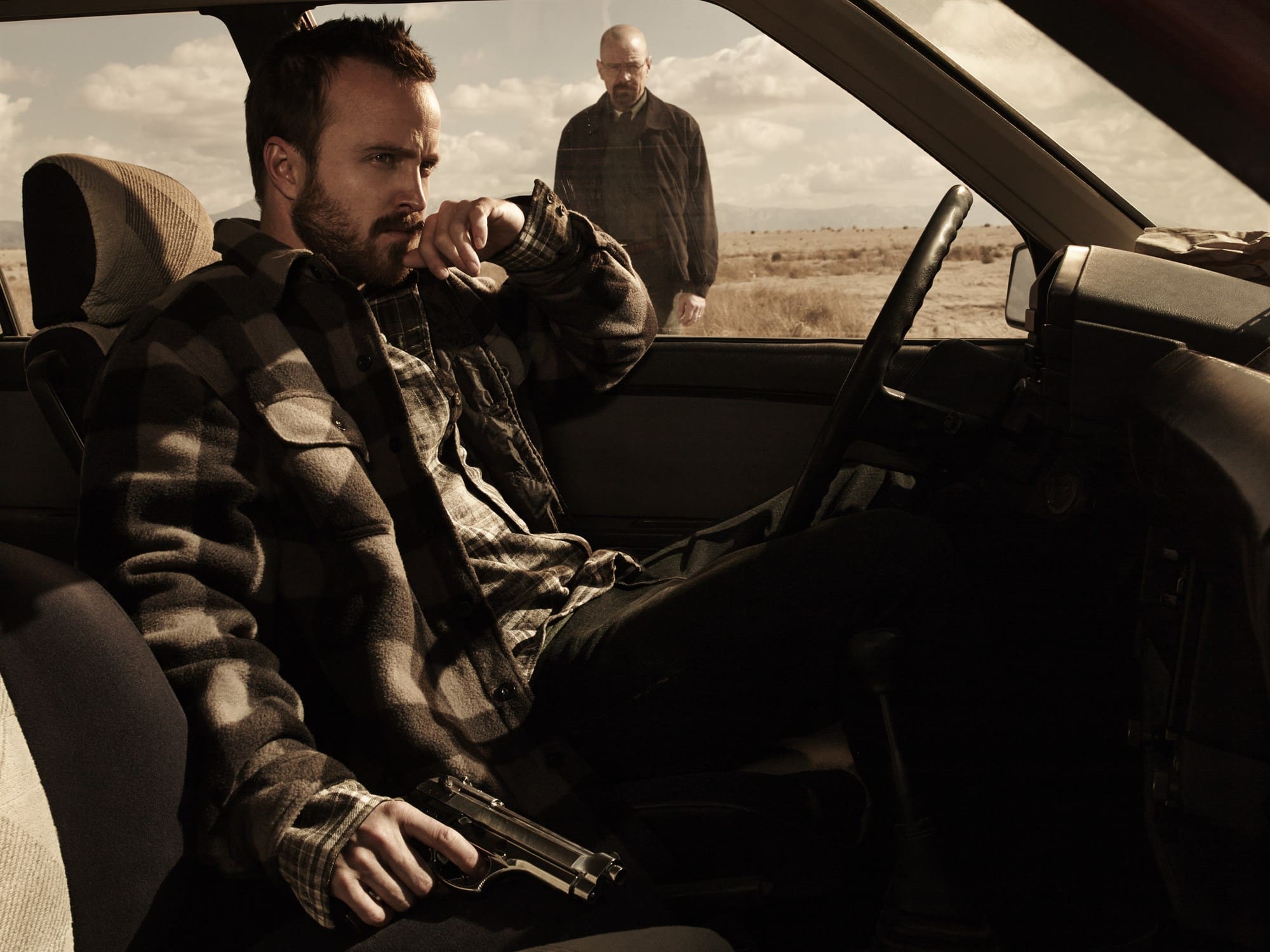
Logan J. Fowler, Associate Editor:
What can I say about this show that hasn’t already been said? That it’s phenomenal? That it didn’t outstay it’s welcome? That the series finale is a prime example of how series finales should be done? In any case, I was lucky enough to review some episodes of Breaking Bad right here on this very site, and it really challenged me as writer to make sure that I not only was critical of the stuff on the screen, but that I didn’t miss any of the finer details that made the show so great. Even as Breaking Bad was concluding its run, the show never failed to deliver on great storytelling and tie up loose ends, which put the pressure on me as a writer.
Still, this is not about me-Breaking Bad is one of the best shows of all time and remains that why even 10 years after it started its run. It was funny, heartbreaking, suspenseful, and provided everything that you could ask for in a show. It gave us one of the best arcs of a main character in Walter White-from good guy, to bad guy, and kind of back to somewhat good again. Show me another show that’s done that. Can’t? That’s okay. I didn’t expect you to. That’s why Breaking Bad will always stand among the greatest TV shows of all time. It is the one that knocks.
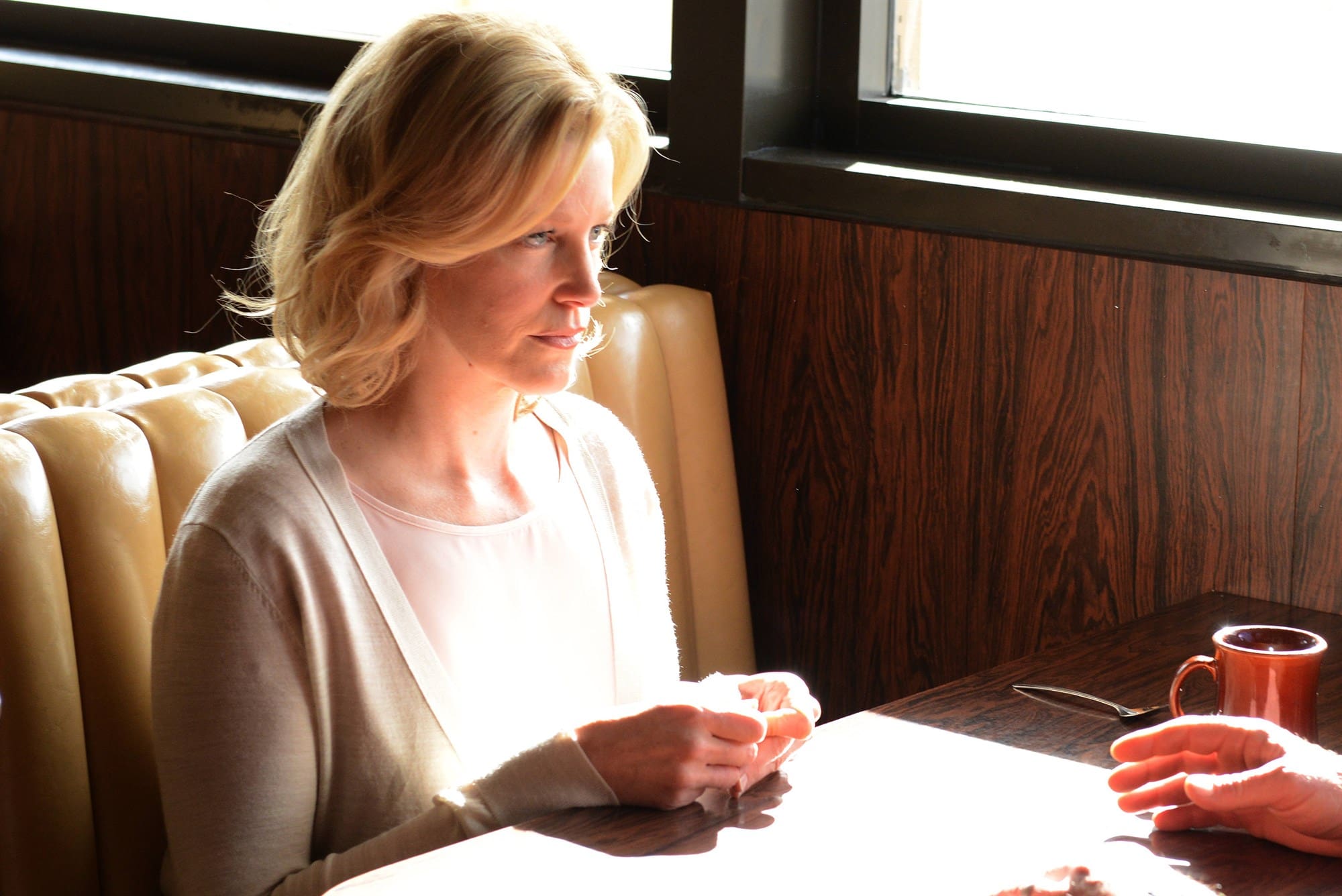
Laura Dengrove, Associate Editor:
I was a late bloomer to the wonderful world of Walter White and the Breaking Bad crew. It felt like everyone in the world was into this phenomenon and I was waving my Twi-hard flag as a puberty stricken teen in love with the idea of vampires. When I finally decided to join the sensation, it was already in its last season, and someone close to me gave me the full seasons on DVDs. For weeks I binged, watching nothing but Breaking Bad, and being upset that I was so late in the game for a series that was almost done.
This show, to me, had become something truly special, as well as something that solidified the fact that I wanted to be in the entertainment industry, so I could meet the amazing people that brought these complex characters to life (coughBryanCranstoncough).
Looking back on it now, it is still a show I hold near and dear to my heart, reminding me of the feeling of excitement and happiness with each new episode. Whenever I’m down, I find myself turning to this series as a form of escape… I’m not sure what that says about my inner psyche. Breaking Bad, to me, is a perfect show, and I’ll never change my mind on that.
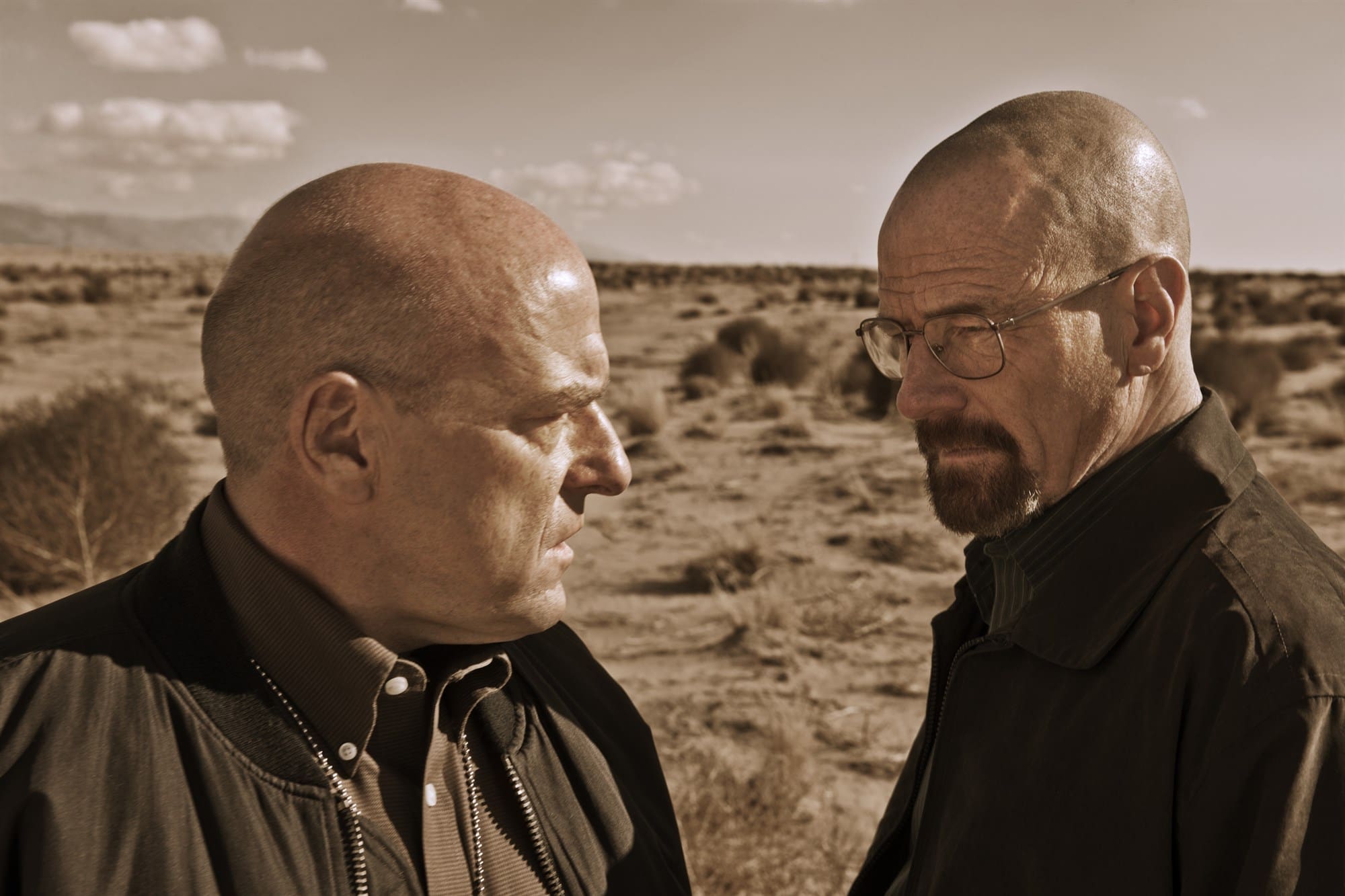
Rob Crowther IV, Contributor:
As a fairly newcomer to Breaking Bad, I was finally able to binge-watch the series over the past few months after constant recommendations from friends. I immediately fell in love. Talk about a show with fantastic writing and some of the best character development I’ve ever seen! A character could do something completely deplorable one episode and something (almost) redeeming the next. Plus, I can’t remember another time that I was literally sitting on the edge of my seat. I just remember hanging off the couch during Hank’s final moments with my hands over my mouth. Although, I really miss the writing, the characters, and the phenomenal cinematography of this show, Better Call Saul is a close second and is really filling the void for the time being!
Matt Gilbert, Contributor:
I was one of the millions who got into Breaking Bad during its year-long hiatus, after the first eight episodes of its fifth and final season. Truth be told, I didn’t see what the big deal was for a while. The series begins very slow and with zero likable characters I could sink my teeth into. Admittedly, it took over ten hours spent as a part of Gilligan’s world before the characters of Walter, Jesse, Hank, Marie and, yes, even Skylar at first (sorry) reveal their own endearing qualities to me that exist in spite of their varying degrees of horribleness rather than to erase them. Their stories barely interested me, and their base personalities made those stories feel like the show just did not know what it was doing with either.
But then came that plane crash. Just as I was finishing season two and about to brand it overrated (the most scathing label a college student was capable of bestowing), Gilligan delivered a scene that is an instant qualifier for the top five most shocking TV moments of all time. In that one moment, I owed Mr. Gilligan an enormous apology. Not only did he absolutely know what he was doing, but he knew it the entire time and I was the one who was too stupid to see and appreciate it. I’ll always remember the feeling I had watching that plane crash, because from that moment, I was one hundred percent in, and Breaking Bad did not disappoint me once after it.
Looking back, Breaking Bad stands proudly as potentially the defining icon of the late 2000s/early 2010s era. With it, Vince Gilligan made Bryan Cranston an A-list actor, introduced us to Aaron Paul, Anna Gunn, Bob Odenkirk and more, delivered one of the most iconic TV antiheroes ever and influenced the entire TV culture landscape into chasing drama series with previously unconventional morally questionable protagonists before definitively capping the entire genre with the series’ conclusion in 2013. There will always be shows that grab us by the lapels, but there will only ever be one Breaking Bad.

